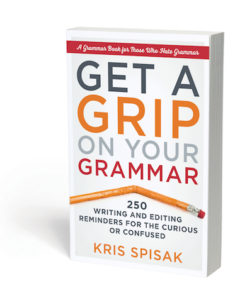Life, Liberty & the Pursuit of an American Language
A Guest Post by Kris Spisak.
 When people think of the American revolution, freedom comes to mind—freedom, liberty, and independence from the necessity of following rules established without any thoughtful representation. But these ideals weren’t and aren’t limited to government. The English language itself went through its own revolution, with founding fathers such as Ben Franklin at the helm here too.
When people think of the American revolution, freedom comes to mind—freedom, liberty, and independence from the necessity of following rules established without any thoughtful representation. But these ideals weren’t and aren’t limited to government. The English language itself went through its own revolution, with founding fathers such as Ben Franklin at the helm here too.
It was an era when “thee” and “thou” were just starting to decline in usage. Our “unalienable rights” were discussed rather than today’s standard “inalienable rights,” and “the” was more commonly written “ye” as a stand-in because the “th” sound no longer had a single alphabet letter to represent it as it once had.
The English language has continuously evolved for hundreds of years, but because the first print dictionaries were published in the 1600s and 1700s, this was an especially turbulent time for words.
Ben Franklin himself suggested that we create a new twenty-six letter alphabet, dropping the letters C, J, Q, W, X, and Y and adding in six new ones of his own creation. His new alphabet would allow, he said, for a phonetic reading of the entire English language. Many ignored him. Many others, like Noah Webster, took Franklin’s many language thoughts into consideration. Thus, when Webster’s American English dictionary was finally published in 1828, he included Franklin’s suggestions that the “u” be removed from “color,” “favorite,” and “honor” and that the “re” in “theatre” and “centre” should be reversed, among many other ideas. The differences between American English and British English were born of this celebration of reason and independent thought, but, of course, the story hardly end there.
The fact that Thomas Jefferson used linguistic ciphers in his correspondence with Merriweather Lewis during his great expedition westward with William Clark is a story for another day.

Kris Spisak wrote her first book, Get a Grip on your Grammar: 250 Writing and Editing Reminders for the Curious or Confused (Career Press, 2017), with a goal to help writers of all kinds empower their communications. Her “Words You Should Know” podcast and “Grammartopia” events follow the same mission. A former college writing instructor, having taught at institutions including the University of Richmond and Virginia Commonwealth University, Kris now works as a freelance editor, specializing in fiction. She is on is on the board of directors of James River Writers, is the co-founder and director of creative strategy of Midlothian Web Solutions, and can’t wait for you to hear about her next book. Sign up for her monthly writing and communications newsletter for more tips and trivia like this.
. . . . . . . . . . . . . . . . . . . . . . . . . . . . . .
Alphabet anecdotes and language-based ciphers also play a role in my American Revolutionary novel Carrying Independence, debuting in summer of 2019.
For research related to the novel and to stay updated on Karen-related author research tidbits, book news and events, subscribe to my e-news publication, CHASING HISTORIES.
Thank you for sharing in the spirit of learning about our collective American History by subscribing to the blog. Guest posts like this one are welcomed and encouraged––by academics, historians, authors, artists, and storytellers. Contact me for details.
